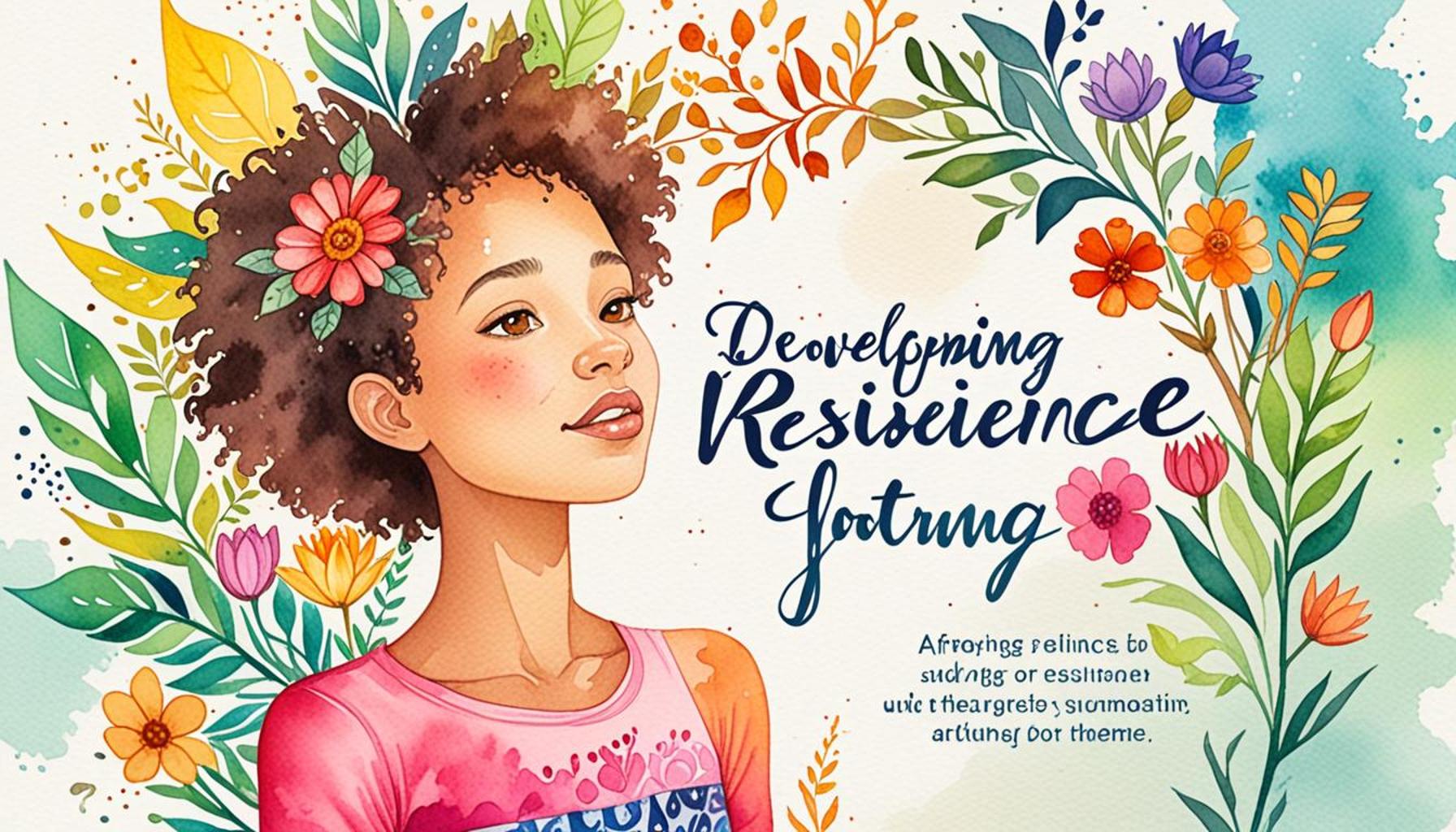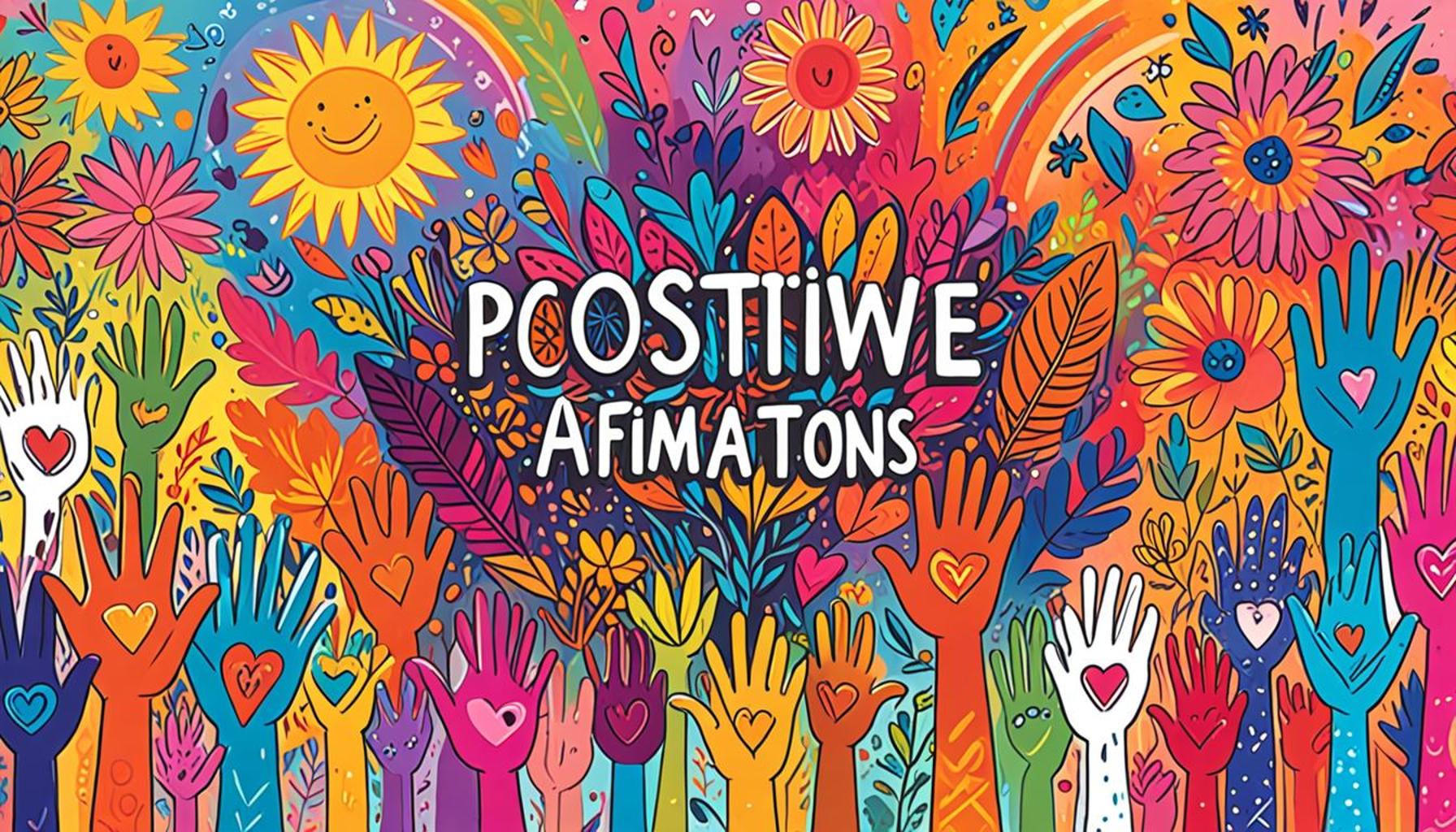Resilience and Self-Affirmation: Strategies to Overcome Daily Challenges

The Power of Resilience and Self-Affirmation
Every day, we face challenges that can test our strength and resolve. Whether it’s the stress from our jobs, family responsibilities, or societal expectations, it’s crucial to cultivate a mindset that fosters resilience and self-affirmation. These mental tools empower us to bounce back from setbacks and remain steadfast in the face of adversity.
So, what do resilience and self-affirmation truly entail? At its core, resilience is the ability to recover quickly from difficulties. This means that when we encounter failure or disappointment, instead of giving in to despair, we find ways to adapt and grow from the experience. On the other hand, self-affirmation is the practice of recognizing and affirming one’s worth and values. This can involve various self-reflective practices, such as journaling about our achievements or reciting positive affirmations that remind us of our strengths and capabilities.
- Resilience enables individuals to navigate crises with a sense of purpose and optimism.
- Self-affirmation fosters a positive self-image, leading to improved mental health and higher self-esteem.
- Together, these qualities can significantly enhance our problem-solving skills and overall well-being.
In Nigeria, where daily life is often a balancing act of myriad responsibilities, developing resilience isn’t just beneficial; it’s essential. Many Nigerians face everyday challenges that can be overwhelming, such as:
- Economic pressures: High unemployment rates and fluctuating market conditions can create anxiety about job security.
- Family expectations: The societal emphasis on familial duties can lead to burnout and stress.
- Health-related concerns: Access to healthcare and coping with chronic health issues are pressing worries for many individuals.
To navigate these challenges effectively, adopting practical strategies becomes paramount. Simple but impactful practices like self-affirmation can significantly influence our mindset. For instance, setting aside time each morning to repeat affirmations or express gratitude can prepare individuals to face the day with confidence. Additionally, techniques such as deep breathing, mindfulness meditation, and engaging in physical activities can further bolster one’s resilience.
Moreover, community support plays a vital role in fostering resilience. In many Nigerian communities, shared experiences—whether through communal gatherings or support networks—can provide encouragement and practical strategies for dealing with life’s adversities.
In the following sections, we will delve into various strategies that promote both resilience and self-affirmation, equipping individuals with the tools to withstand and thrive amidst life’s challenges. Embracing these strategies is not merely about coping; it’s about thriving and embracing the full potential of one’s capabilities.
RECOMMENDED: Check out this similar article
Building Blocks of Resilience and Self-Affirmation
In the quest to cultivate resilience and self-affirmation, understanding their foundational aspects is crucial. Resilience involves not just recovering from setbacks, but also using those experiences as stepping stones towards personal growth. It embodies the ability to adapt in the face of adversity, helping individuals to see challenges as opportunities rather than insurmountable obstacles. In Nigeria, where economic fluctuation and social expectations are the norm, this mindset is particularly critical.
Self-affirmation, on the other hand, is a powerful tool that allows individuals to recognize their own value. Engaging in self-affirming practices heightens self-awareness and promotes a positive self-image, which is essential for navigating daily life’s complexities. These practices can be simple yet effective, with a lasting impact on one’s mental health and emotional resilience.
Practical Strategies to Boost Resilience
To effectively foster resilience, individuals can implement various strategies tailored to their unique circumstances. Here are some practical techniques that can make a significant difference in overcoming daily challenges:
- Embrace a Growth Mindset: Adopting the belief that abilities can be developed through dedication and hard work encourages perseverance. This mindset helps individuals see failures as temporary setbacks rather than defining moments.
- Cultivate Self-Compassion: Practicing kindness towards oneself fosters emotional resilience. Instead of harshly criticizing oneself after a mistake, individuals can learn to treat themselves with the compassion they would extend to a friend.
- Set Realistic Goals: Achieving small, realistic goals provides a sense of accomplishment that can build confidence. Breaking larger tasks into manageable steps makes them less overwhelming.
- Develop Problem-Solving Skills: When facing challenges, actively engaging in problem-solving can bolster resilience. This may involve seeking different perspectives, brainstorming solutions, or analyzing past experiences to identify what worked before.
- Strengthen Social Connections: Building a strong support network is vital. Social connections can provide emotional support and encouragement, making it easier to navigate difficult times.
The Role of Self-Affirmation
Alongside resilience, self-affirmation significantly bolsters our ability to handle everyday challenges. Engaging in regular self-affirmation practices can reshape an individual’s perspective. Here are some effective approaches:
- Daily Affirmations: Taking time each day to recite positive affirmations can enhance self-worth. Phrases like “I am capable” or “I deserve to succeed” can change internal dialogues and reinforce confidence.
- Gratitude Journaling: Maintaining a journal to document things one is grateful for can shift focus from negative thoughts to positive experiences, enhancing overall resilience.
- Reflect on Past Achievements: Regularly reviewing past successes can remind individuals of their capabilities, thus strengthening their self-affirmation.
Combining these strategies not only builds resilience but also deepens self-affirmation, creating a fortified mindset capable of withstanding the pressures of daily life. In the context of Nigeria’s dynamic environment, where change is constant and challenges are unique, the integration of these practices is more pertinent than ever.
Exploring Resilience and Self-Affirmation Techniques
Resilience is not an inherent trait but a skill that can be cultivated through various strategies. One of the most effective methods is the practice of self-affirmation. This involves reinforcing your values and abilities, which can significantly impact your mental health and well-being. Research suggests that self-affirmation can lead to increased motivation, better performance, and enhanced psychological resilience. By reminding ourselves of our strengths, we can develop a robust shield against the stresses and challenges we face daily.Another key strategy is mindfulness meditation. This practice encourages individuals to remain present and to acknowledge their thoughts and feelings without judgment. Mindfulness not only enhances self-awareness but also helps in managing emotions, reducing anxiety, and improving overall mental clarity. Incorporating short meditation sessions into your daily routine can empower you to face challenges with a calm and focused mind.Setting realistic and achievable goals is also essential for building resilience. By breaking larger tasks into manageable steps, you can foster a sense of achievement and maintain motivation. Celebrating small victories, no matter how trivial they seem, can boost your confidence and encourage a resilient mindset. Furthermore, surrounding yourself with a supportive community can provide additional strength and affirmation. Engaging with peers who uplift you creates an environment conducive to resilience and self-growth.In essence, developing resilience and practicing self-affirmation are integral to overcoming daily hurdles. Utilizing these techniques can help transform adversity into opportunities for personal growth, leading to a more fulfilling and empowered life.
| Category | Description |
|---|---|
| Self-Affirmation | Reinforces personal values and strengths to enhance mental resilience. |
| Mindfulness | Promotes present-moment awareness, helping to manage stress and improve clarity. |
This collection of strategies can significantly aid anyone looking to bolster their resilience and practice self-affirmation, ultimately leading to transformative changes in daily life.
CHECK OUT: Click here to explore more
Harnessing the Power of Community and Cultural Identity
In Nigeria, the concept of community is deeply embedded in the culture, playing a pivotal role in fostering resilience and self-affirmation. Social ties are not merely interactions; they are lifelines that can provide support, encouragement, and a sense of belonging. Leveraging these communal strengths can significantly enhance one’s ability to tackle daily challenges.
The Impact of Community Support
Community support is a resource that many individuals may underestimate, especially in times of personal crisis or stress. Engaging with family and friends can create a safety net that is invaluable. Studies have shown that social support contributes to better mental health outcomes, providing people with a sense of belonging and reducing feelings of isolation. Whether through local gatherings, communal events, or even online platforms, maintaining these networks ensures that individuals have access to both emotional and practical support.
The traditional Nigerian saying, “It takes a village to raise a child,” epitomizes this interconnectedness. Just as raising children is a communal responsibility, so too is building resilience. By sharing experiences, community members can learn from each other’s successes and failures, creating an educational cycle that fortifies overall resilience.
Cultural Identity as a Source of Strength
Embracing one’s cultural identity also plays a significant role in reinforcing self-affirmation. In Nigeria, with its diverse ethnic backgrounds and rich histories, individuals can draw strength from their cultural roots. Engaging in cultural practices, rituals, and celebrations not only reinforces self-identity but also fosters a collective strength that is invaluable during challenging times. Celebrating achievements within the context of one’s culture can enhance self-esteem and promote a positive self-image.
- Participating in Cultural Events: Taking part in traditional festivals or ceremonies allows individuals to connect with their heritage and share in collective joy, fostering a sense of belonging that can enhance resilience.
- Storytelling and Oral Traditions: Engaging in storytelling connects individuals with their past and instills lessons learned from ancestors. This practice can be particularly impactful for children and young adults, helping them understand their place within a larger narrative.
- Utilizing Proverbs and Wisdom: Nigerian proverbs often carry profound lessons regarding perseverance, strength, and character. Incorporating these into daily life can serve as a source of inspiration and fortitude.
Developing Emotional Intelligence
Another crucial aspect of resilience and self-affirmation is the development of emotional intelligence. Emotional intelligence refers to the ability to recognize, understand, and manage our emotions as well as those of others. In navigating daily challenges, possessing strong emotional intelligence can lead to enhanced coping strategies and interpersonal relationships.
Building emotional intelligence can enhance problem-solving skills and facilitate better conflict resolution. In communal settings, understanding emotional dynamics can transform relationships, leading to cooperative solutions in the face of challenges. Furthermore, investing time in self-reflection fosters greater self-awareness, a key trait for any resilient individual.
Incorporating these communal, cultural, and emotional factors can significantly strengthen one’s ability to overcome various obstacles. Harnessing the power of community, while embracing cultural identity and improving emotional intelligence, offers individuals in Nigeria a richer toolkit for developing resilience and self-affirmation. Through these practices, they can cultivate a sense of empowerment to take on life’s daily challenges head-on.
ADDITIONAL INSIGHTS: Expand your understanding here
Conclusion: Empowering Your Journey to Resilience
In the face of life’s inevitable ups and downs, cultivating resilience and self-affirmation emerges as a vital endeavor for individuals seeking to overcome daily challenges. The synthesis of community support, cultural identity, and emotional intelligence offers a multifaceted approach that can profoundly enhance one’s capacity to navigate obstacles. By tapping into the rich networks of familial and social ties, individuals can foster a sense of belonging and share invaluable experiences that ultimately contribute to a collective resilience.
Moreover, embracing cultural roots not only fortifies self-identity but also promotes a powerful affirmation of self that echoes through generations. Engaging in traditional practices and harnessing the wisdom of proverbs provides a framework for reflection and motivation in daily life. This cultural richness serves as a wellspring of strength during turbulent times, reminding individuals of their shared heritage and resilience.
Finally, the development of emotional intelligence cannot be overstated. By honing the skills to understand and manage emotions—both our own and those of others—we create pathways for effective problem-solving and collaboration. This emotional acuity plays a critical role in transforming challenges into opportunities and fostering harmonious relationships.
As we reflect on these strategies, it becomes clear that resilience and self-affirmation are not just personal journeys; they are shared experiences bolstered by community and enriched by culture. The continuous practice of these principles empowers individuals across Nigeria to tackle life’s hurdles with courage and clarity, reinforcing the belief that together, we can withstand the storms and celebrate the triumphs. As we build on this foundation, let us continue exploring and implementing these strategies to foster a culture of resilience that echoes within our communities.


